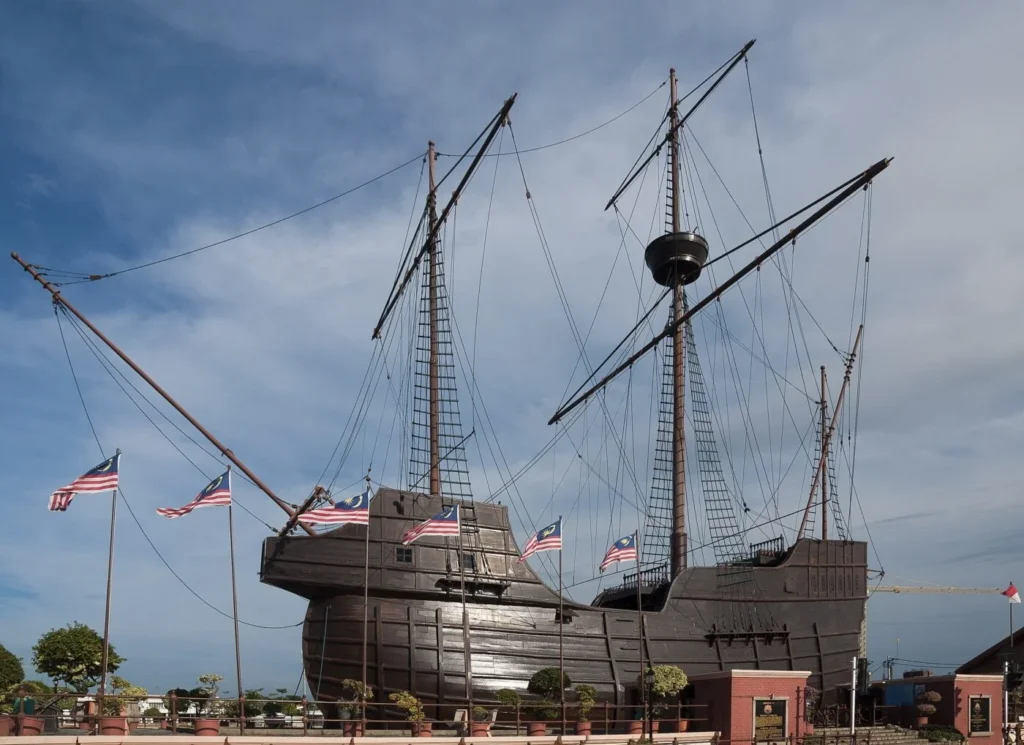
Photo Credit: tourismmelaka.com’s picture of a replica of Flor de la Mar, the Portuguese ship that conquered Malacca in 1511
By S. Jayasankaran
A little stupidity can go a long way
I’ve mixed feelings about artificial intelligence. It’s a tad too succinct for my taste.
Example: a friend asked ChatGPT: Who is Dr Rebecca Sta Maria’s husband? Its reply was terse: “A Malaysian Indian.” No bells, no whistles. I mean, really!
Not the best answer, I don’t think.
Anyway, I asked it today: “Did the Romans really learn shipbuilding from the Malays?
Its reply was swift: No.
And it paused meaningfully as if it wanted to add, “Duh!”
I think artificial intelligence is no match for natural stupidity. And, as if to prove my point, there’s an Islamic University Professor, let’s call her Dr Es, who, in an academic treatise, claimed the ancient Romans learnt shipbuilding from the Malays.
“We taught them everything they knew,” quoth the nutty professor.
History indicates that Rome already had a formidable navy 264 years before Jesus. Meanwhile, there is no mention of a Malay Navy, let alone a shipbuilding industry.
There doesn’t seem to have been one some 1,800 years later either: old Alfonso sailed up the Malacca River to claim its port in the name of Portugal’s King Manuel against little opposition.
Indeed, Dr Es’s original premise attracted criticism from her peers who wished she would concentrate on more important matters like the position of bomohs in Malaysian society.
Did Dr Es baulk?
Not by the hairs on her chinny-chin-chin.
In a Facebook post that all but spluttered, the angry academic and self-styled thought expert stood by her theory, which she said was “developed through extensive study of classical Arabic sources.”
“My hypothesis concerning the achievements of the Malays and the borrowings of the Romans may be right or wrong. However, in both our academic and Islamic traditions, we are taught to respect differing opinions,” she wrote.
It was a crafty dig at her detractors. The thought-expert was pointing out that her critics were wrong, if not unkind, to criticise her research if it was flawed, because she stood ready to accept all “differing” views.
“Unlike the Europeans, who were largely continental, the Malays were a maritime civilisation… I firmly believe that the Malays were among the first peoples in human civilisation to develop the art of shipbuilding.”
Malaysia has never displayed any indigenous shipbuilding capability, certainly not once since independence in 1957. The awkward academic does not consider the point relevant.
Among Asian countries, South Korea and Japan stand out as two countries that make vessels of intelligent design. China, however, is the most prolific.
The lecturer has had a history of controversy. She once asserted that the Malays could fly: she did not cite any airline.
She’s also cited The Onion as a research source. It’s anything but: The Onion is a US-based satirical read, although its editors must have been delighted by its Dr Es-induced elevation.
The indignant Dr Es now says she’s the victim of a “media lynching.”
Even her university has distanced itself from her remarks, saying it regrets her actions, “which have tarnished our reputation.” More ominously, it has launched an internal investigation into the matter.
The abrasive academic had the last word, though, “I sincerely hope that all forms of slander, insult, disinformation, and ridicule will come to an end,” she concluded.
So do we, and there’s a moral here.
Talking cockerel can, and sometimes will, come back to haunt you.
The views expressed here are entirely those of the author